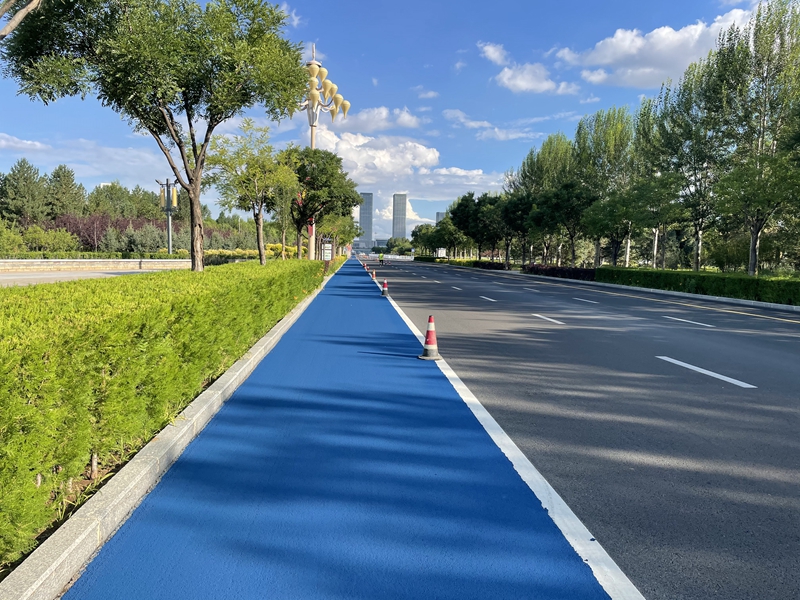Carbon black is one of the most important industrial materials used today. Produced by the incomplete combustion or thermal decomposition of heavy petroleum products, this fine black powder plays a crucial role in a wide range of industries. Its unique properties—such as high surface area, deep jet-black color, electrical conductivity, and UV resistance—make it a versatile additive.
Whether in construction, automotive, plastics, or coatings, carbon black delivers performance that other materials cannot easily replace. For businesses looking to understand the value of this pigment, here are the top five industrial applications of carbon black that you should know.
1. Rubber and Tire Manufacturing
The largest use of carbon black1 worldwide is in the rubber industry2, especially in the production of tires. More than 70% of carbon black produced globally goes into rubber applications.
In tires, carbon black1 strengthens the rubber compound, increases durability, and enhances resistance to wear and tear. It improves the overall lifespan of tires by reinforcing the rubber structure, making them more resistant to heat and mechanical stress. Beyond durability, carbon black also helps in heat dissipation, reducing the risk of blowouts and improving safety.
Carbon black is also used in other rubber goods such as belts, hoses, seals, and gaskets. For these products, it ensures flexibility, resilience, and long-lasting performance—qualities that industries like automotive and construction heavily rely on.
2. Plastics and Polymers
Another major application of carbon black3 is in plastics manufacturing. Here, it serves as both a colorant and a functional additive. Its deep black pigmentation is unmatched, offering plastics a uniform and appealing appearance.
But carbon black3 does more than just provide color. It significantly improves UV resistance in plastics. Without this protection, plastics exposed to sunlight would quickly degrade, losing mechanical strength and becoming brittle. By incorporating carbon black, manufacturers extend the service life of plastic materials used outdoors, from agricultural films to water pipes and automotive components.
Moreover, carbon black3 improves electrical conductivity in certain plastic products, making it valuable in packaging for electronic components where static protection is required.
3. Paints and Coatings
Carbon black is widely used in paints, inks, and coatings for its pigmentation properties. It provides a deep, rich black color and is often used as a tinting agent to adjust shades in coatings.
In addition to its visual qualities, carbon black enhances performance. Its excellent UV protection helps coatings resist fading and chalking when exposed to sunlight. This makes it a popular choice for protective coatings on metal, wood, and concrete surfaces.
Architectural paints, industrial coatings, and even automotive finishes benefit from the durability and weather resistance carbon black offers. It ensures that coated surfaces maintain their appearance and integrity for years, even under harsh environmental conditions.
4. Construction Materials
In the construction industry, carbon black4 is used as a pigment and performance additive in concrete, cement, asphalt, and roofing materials. Its deep coloration helps achieve consistent black or gray tones, while its stability ensures long-lasting results.
For asphalt and bitumen, carbon black4 enhances UV resistance5, preventing premature aging caused by sunlight exposure. This extends the service life of roads and roofing materials, reducing maintenance costs.
In concrete and cement products such as tiles, pavers, and precast blocks, carbon black4 offers strong color stability, making it ideal for decorative and structural applications alike. Builders and contractors rely on it to deliver both aesthetic value and functional durability.
5. Electronics and Energy Storage
A growing application of carbon black is in electronics and energy-related products. Thanks to its excellent electrical conductivity, carbon black is widely used in the production of conductive plastics, cables, and electronic components.
In the energy sector, carbon black serves as a conductive agent in lithium-ion batteries, fuel cells, and supercapacitors. It enhances the performance of electrodes by improving conductivity and maintaining structural integrity. This makes it an essential additive in modern energy storage technologies.
With the increasing demand for renewable energy and electric vehicles, the role of carbon black in this field is expected to expand even further in the coming years.
Conclusion
From rubber products to energy storage, carbon black6 remains a cornerstone material in modern industry. Its ability to enhance durability, conductivity, UV resistance, and color stability ensures it will continue to play a vital role in manufacturing and construction.
For businesses across sectors—automotive, plastics, coatings, construction, and electronics—understanding these applications is key to making informed sourcing and production decisions.
At XT Pigment, we focus on delivering high-quality carbon black solutions7 tailored for industrial needs. With years of expertise in pigments, we help manufacturers and distributors achieve reliable performance and long-term value in their products. If you are looking for a trusted partner in carbon black supply, XT Pigment is ready to support your business.
-
Explore this link to understand the critical role of carbon black in enhancing rubber products, especially tires. ↩ ↩
-
Discover insights into how the rubber industry leverages carbon black to improve tire performance and safety. ↩
-
Explore this link to understand how carbon black enhances plastics, improving durability and appearance. ↩ ↩ ↩
-
Explore this link to understand how carbon black enhances durability and aesthetics in construction. ↩ ↩ ↩
-
Learn about the importance of UV resistance in extending the life of construction materials. ↩
-
Explore this link to understand how carbon black enhances products across multiple sectors, ensuring quality and performance. ↩
-
Discover resources that provide insights into sourcing top-notch carbon black solutions tailored for your business requirements. ↩









